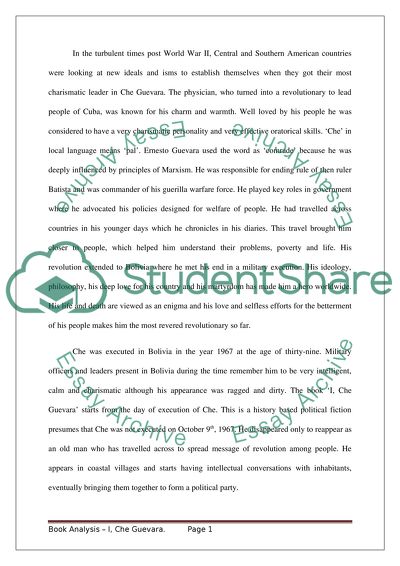Cite this document
(“Book Analysis for the book I, Che Guevara Essay”, n.d.)
Retrieved from https://studentshare.org/history/1493150-book-analysis-for-the-book-i-che-guevara
Retrieved from https://studentshare.org/history/1493150-book-analysis-for-the-book-i-che-guevara
(Book Analysis for the Book I, Che Guevara Essay)
https://studentshare.org/history/1493150-book-analysis-for-the-book-i-che-guevara.
https://studentshare.org/history/1493150-book-analysis-for-the-book-i-che-guevara.
“Book Analysis for the Book I, Che Guevara Essay”, n.d. https://studentshare.org/history/1493150-book-analysis-for-the-book-i-che-guevara.


